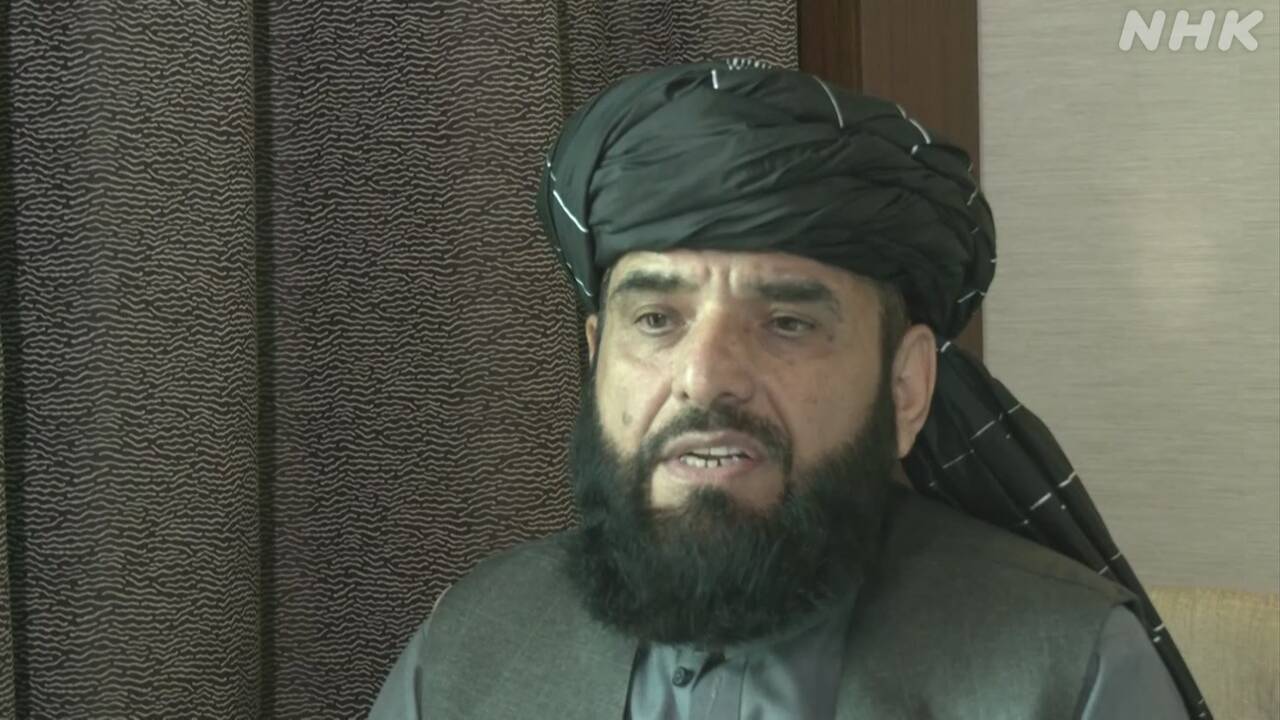A United Nations conference to discuss the situation in Afghanistan, ruled by the Islamist Taliban, begins in Qatar in the Middle East. However, the Taliban, who were invited to the conference for the first time, announced at the last minute that they would not attend, highlighting the gap in their stance with the international community, which is concerned about the oppression of women.
The two-day conference, which will be held from the 18th in Doha, the capital of Qatar, with the aim of improving the human rights situation in Afghanistan, will be attended by UN Secretary-General Antonio Guterres and representatives from Europe, the United States, Japan, and other countries. For the first time, representatives of the government were also invited.
However, the day before the event, the Ministry of Foreign Affairs, which is affiliated with the Taliban, issued a statement expressing its reluctance to attend, and a senior Taliban official subsequently revealed in an interview with NHK that there was ``no possibility of attending.''
At this conference, attention was focused on whether a full-fledged discussion would begin between the international community, which calls for improvements in the human rights situation of women, and the Taliban, who objected to this as ``interference in internal affairs.'' It is an embossed shape.
In Afghanistan, under the Taliban, who rule based on their own interpretation of Islamic law, women are severely oppressed, with women only being able to attend school up to elementary school, and there is an urgent need to improve the situation. .
The Taliban appears to be objecting to the fact that Afghan citizens, including women's groups, were invited to the meeting, and that the appointment of a UN special envoy for Afghanistan is being considered.
Full-fledged discussions are expected to begin at the conference from the 19th, but with the Taliban in power not attending, the focus will be on how the international community can participate in improving the situation in Afghanistan.
Some children are mentally unstable due to restrictions on women's education.
In Afghanistan, after the return of the Taliban in 2021, restrictions on women's education have gradually become stricter, and currently women are only able to attend elementary school, and many children are being pushed into a corner mentally.
Zahra, 15, who lives in the capital Kabul and was in the sixth grade when the Taliban returned to power, has now entered junior high school but has not attended school for two years.
As she continued to spend her days at her girlfriend's home, she became mentally unstable, with tears suddenly flowing down her face and uncontrollable monologues.
She goes to the hospital for treatment and tries to distract herself by doing household chores such as cooking and cleaning, and these days her symptoms are almost gone, but she still occasionally sheds tears. she says.
Rereading the same textbook for two years
Zahara said, ``It's very hard because there is nowhere I can study.I have spent the past two years in a boring life.My dream is to become a doctor, but I don't know how to make it happen.'' "Hmm," he said.
Zahara's favorite pastime is rereading the textbooks he used at his school.
In the two years since he was unable to attend school, he has been rereading the same textbook and reminiscing about the days when he went to school with his friends.
Zahra said, ``As we get older, we are missing the opportunity to learn because we cannot go to school. I am worried because I don't know if the Taliban will reopen schools.'' I want them to lobby the Taliban so they can go to school."
Expert: “Women’s education: It is important to convey how necessary it is for development.”
Regarding the Taliban being invited to the United Nations conference in Doha, Kenta Aoki, research director at the Middle East Research Group, who is familiar with the situation in Afghanistan, said that the international community's efforts to reach out to the Taliban had not yielded any results. ``There is a risk that discussions will become parallel between foreign countries that seek to guarantee women's rights and the Taliban, which insists on building a nation based on Islamic law and in line with tradition,'' he said. It is said that it will not be easy to change the Taliban's stance even if discussions on the matter get into full swing.
On the other hand, given that China accepted an ambassador sent by the interim Taliban government, he said, ``Isn't it a natural progression for China to strengthen relations with countries that it is easier to work with than the West, which demands compliance with human rights?'' He pointed out that it is important not to assume that the Taliban are in a hurry to gain recognition from the international community.
He added, ``Rather than imposing values, it is important to convey how women's education is necessary for Afghanistan's development.The Taliban's power is concentrated in the supreme leader, who has little contact with foreign dignitaries, and has no voice. There is a structural problem in that the voices are not being heard, but unless we make our voices heard firmly at the heart of the Taliban, change will not occur,'' he said, indicating the need for persistent efforts.

